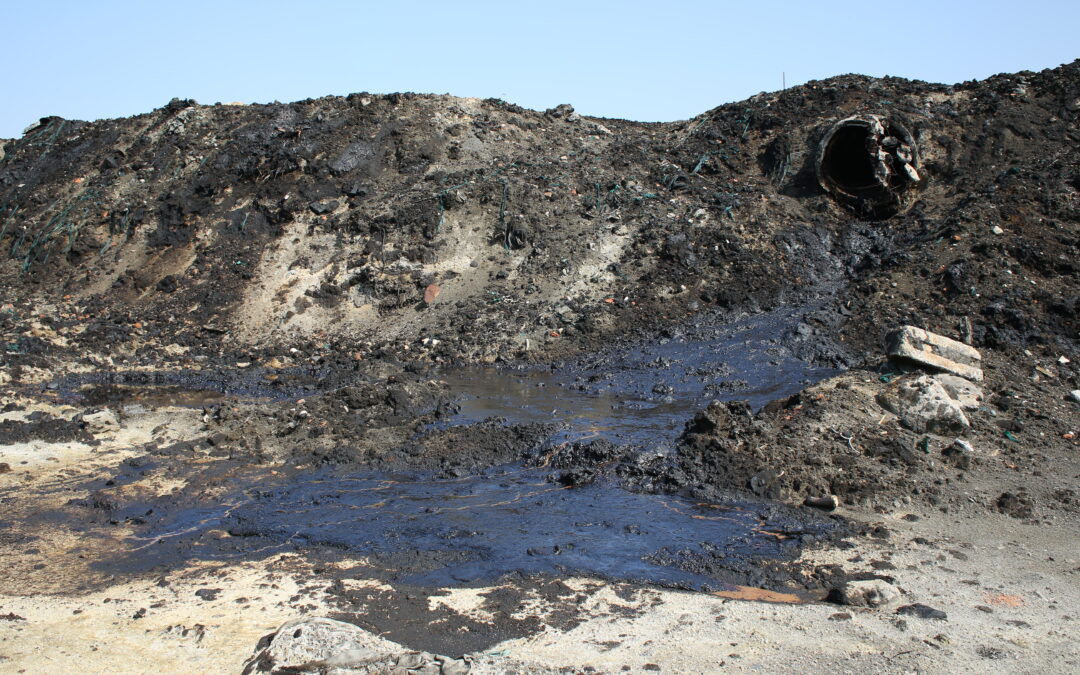Soil contamination and remediation can impact landowners, communities, and the environment. When harmful chemicals or oil byproducts enter the ground, soil contamination can endanger the health of those living in the area and affect the value of the land. For Louisiana landowners, understanding what causes soil contamination and how soil remediation works can help them protect their property.
What Is Soil Contamination?
Soil contamination occurs when chemicals, metals, or petroleum waste seep into the ground. In areas near old oilfields, unlined waste pits and corroded pipelines often leak toxic substances into the earth. Even abandoned wells can allow saltwater, drilling muds, and solvents to spread underground. Over time, these pollutants build up in the soil and can move into groundwater, crops, timber, and more.
How to Detect Soil Contamination
Contaminated soil poses serious risks to health, wildlife, and land use, but the methods of detecting it can vary. Landowners may notice dead grass or stunted plants over a polluted zone. In other cases, they might smell fuel or solvents when digging into the dirt. At times, there are no noticeable signs, and only a soil test in a certified lab can reveal elevated levels of lead, arsenic, or hydrocarbons.
Impacts of Soil Contamination
The health risks of soil contamination can range from skin irritation and breathing problems to long-term organ damage. Polluted soil can also kill trees, harm livestock that graze there, and make farmland unsafe for crops. When contamination lingers, property values fall and resale becomes difficult.
What Is Soil Remediation?
Soil remediation means cleaning or containing contaminated soil so it is no longer a threat. The goal is to reduce pollutant levels to safe standards set by regulators or courts. Soil remediation often involves the removal, neutralization, or isolation of the toxins in the ground through the following methods:
- Excavation crews dig out polluted soil and replace it with clean dirt.
- In-place techniques can break down contaminants on the spot.
- Bioremediation uses bacteria to digest oil and chemical residues.
- Chemical treatment can bind or transform toxins into harmless compounds.
- Thermal systems apply heat underground to vaporize and capture volatile pollutants.
Choosing the right remediation method starts with a full site assessment. Experts test soil samples to find out what and how much pollution exists. Landowners will then weigh the cost, time, and environmental impact of remediation. In many cases, cleanup plans also account for future land use, such as farming or building. A solid remediation plan ensures landowners can meet safety standards and protect their investments.
The Soil Remediation Process
During remediation, cleanup teams remove or treat the polluted soil. They monitor progress with repeat testing to make sure pollution levels fall below safety limits. After cleanup, specialists install monitoring wells or fences to guard against future leaks. Final reports document the work and confirm that the land meets cleanup standards.
The Role of a Legacy Litigation Attorney
If your property shows signs of contamination from historic oil and gas operations, a Legacy litigation attorney can help. These attorneys work to trace liability back to the companies that drilled, produced, and dumped waste on your land. They gather old lease agreements, drilling logs, and expert testimony to prove fault.
A skilled Legacy litigation attorney will also be aware of the complex rules and filing deadlines for your case. An attorney can work with environmental experts to draft a solid remediation plan and present it in court or before regulators.
Through Legacy litigation, your attorney seeks funds for both remediation and economic losses. That money can pay for soil removal, ground-water treatment, and ongoing monitoring. It may also compensate you for lost land value or crop damage.
How Talbot, Carmouche & Marcello Can Help
At Talbot, Carmouche & Marcello, we have decades of experience in contaminated soil remediation cases. Our Legacy litigation attorneys have won numerous multi-million dollar verdicts and settlements for our clients against major oil companies.
We begin with a free consultation to discuss the suspected soil contamination on your property. If we see a strong claim, we work with a wide range of experts to build a clear case. We handle all costs up front and take no fees unless we win.
Our team also closely monitors legislative changes to determine if your rights are affected. With Talbot, Carmouche & Marcello on your side, you gain an advocate who fights for proper remediation and fair compensation. If your land shows signs of pollution, contact a Legacy litigation attorney at Talbot, Carmouche & Marcello today. We stand ready to protect your property and secure the remediation you deserve.

